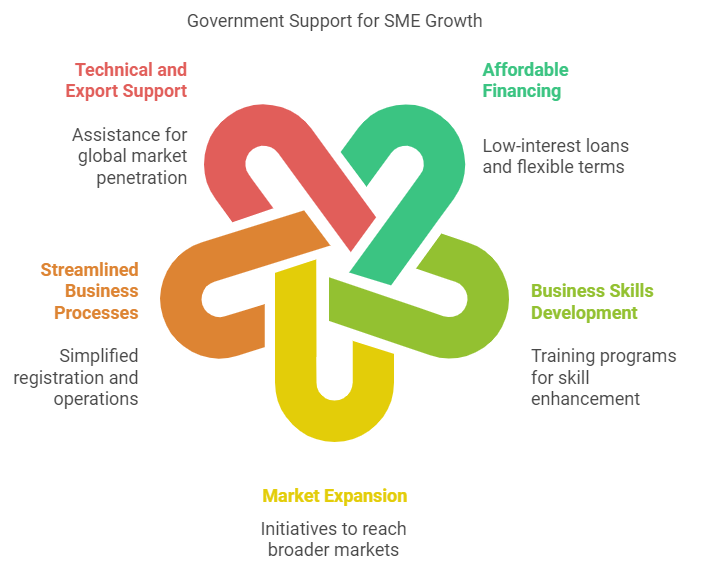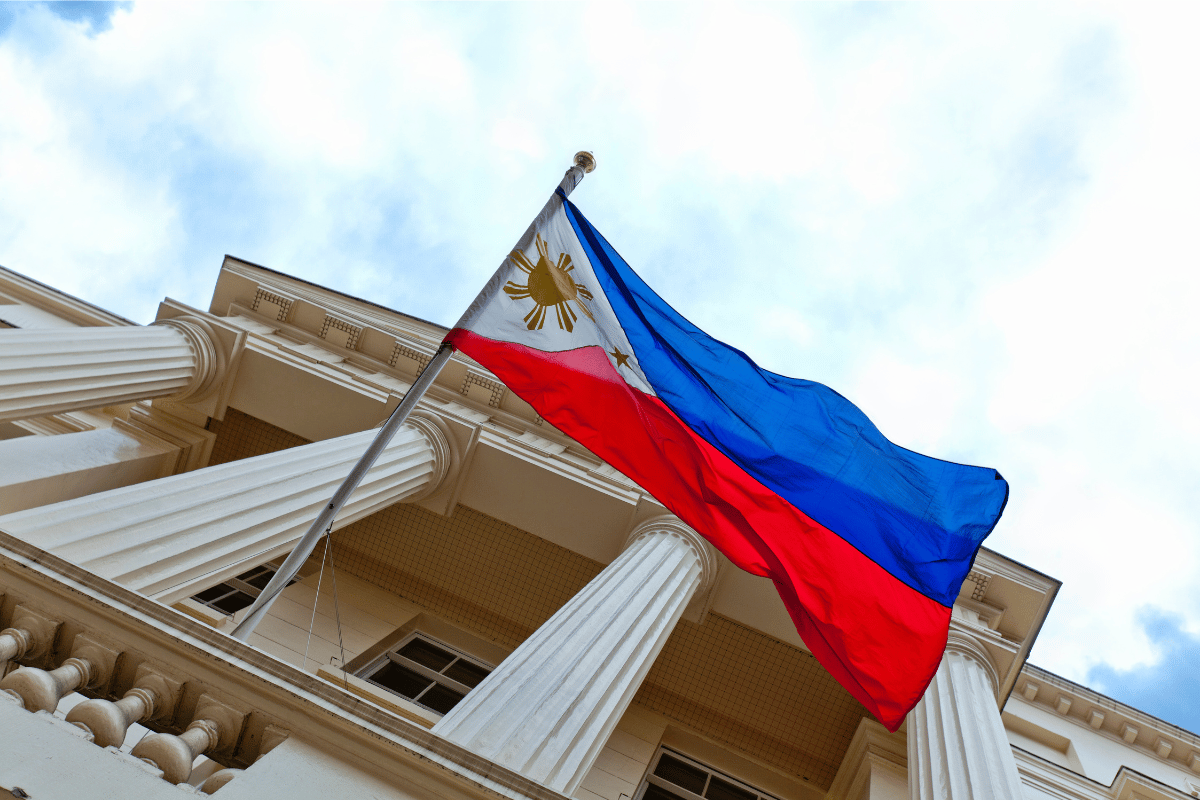Small businesses are the backbone of the Philippine economy, driving innovation and employment. Therefore, to recognize their vital role, the Philippine government offers various forms of assistance to help SMEs grow and thrive, especially during challenging times like economic downturns or global crises.
Essentially, these programs include financial support, capacity-building initiatives, and tax incentives designed to promote entrepreneurship, improve competitiveness, and sustain business operations.
Hence, by understanding the available forms of government assistance, small business owners can utilize these resources to enhance their SMEs' operations, overcome challenges, and contribute to the country's overall economic growth.
Moreover, this guide will be a comprehensive resource for navigating government support initiatives, as it will help Philippine small businesses to understand the various critical nuances of the multiple programs available and their benefits. So, without much ado, let us explore all the relevant details.

Top 10 Forms of Assistance Offered by Government to Businesses in The Philippines
The Philippine government provides several assistance programs to support the growth and sustainability of SMEs. Here are the top 10 government assistance programs to choose from -
1. Small Business Corporation (SB Corp.)
SB Corp. is a government-owned corporation that provides financial assistance to SMEs through various loan programs. It focuses on helping businesses access low-interest loans, especially during economic disruptions.
Key Features:
- Low-interest rates
- Loan packages for MSMEs
- Priority for COVID-19 recovery loans
- No collateral for some loans
2. Department of Trade and Industry (DTI) Negosyo Centers
DTI's Negosyo Centers are a one-stop shop for aspiring and existing entrepreneurs. They provide services such as business registration assistance, training programs, and access to financing.
Key Features:
- Free business advisory and consultation services
- Business registration assistance
- Training and capacity-building workshops
- Access to financing opportunities
3. Go Lokal! Program
This DTI initiative helps SMEs showcase their products in mainstream retail outlets and online platforms. It aims to promote locally-made products and support Filipino entrepreneurs.
Key Features:
- Free marketing and retail space for SMEs
- Promotion of locally produced goods
- Access to a broader customer base
- Partnerships with retail giants and e-commerce platforms
4. DTI Pondo sa Pagbabago at Pag-Asenso (P3) Program
The P3 Program offers low-interest, no-collateral loans to micro, small, and medium enterprises (MSMEs) to reduce dependency on informal lenders and provide more accessible financing for small businesses.
Key Features:
- Low-interest rates
- No collateral required
- Fast processing of loans
- Loan amounts from PHP 5k to PHP 200k
5. Philippine Export Development Plan (PEDP)
The PEDP supports SMEs looking to expand internationally by providing export assistance, from market entry strategies to financing and compliance with global standards.
Key Features:
- Export assistance and guidance
- Access to international markets
- Capacity-building for export requirements
- Financing for export ventures
6. Board of Investments (BOI) Incentives Program
The BOI offers fiscal and non-fiscal incentives to encourage investment in priority industries, including SMEs. This program helps businesses by providing tax breaks and enabling growth.
Key Features:
- Income tax holidays
- Duty-free importation of capital equipment
- Simplified import/export procedures
- Assistance in regulatory compliance
7. Philippine Guarantee Corporation (PhilGuarantee)
PhilGuarantee provides credit guarantees to SMEs, enabling them to access loans from banks by reducing the risk to lenders. This program makes it easier for SMEs to secure funding.
Key Features:
- Credit guarantees for loans
- Lower risk for lenders
- Increased loan accessibility for SMEs
- Focus on agriculture and rural businesses
8. Shared Service Facilities (SSF) Program
This program, managed by the DTI, provides SMEs access to machinery, equipment, and technology to improve productivity and product quality.
Key Features:
- Access to advanced machinery and technology
- Support for product innovation and development
- Improved efficiency and competitiveness
- Shared resources for multiple SMEs in a community
9. Tech Startups Ecosystem Development Program (TSEDP)
This program, led by the Department of Information and Communications Technology (DICT), aims to nurture the tech startup ecosystem in the Philippines. It offers support for innovation and funding for tech-based SMEs.
Key Features:
- Funding for tech-based SMEs
- Access to mentorship and training
- Support for business incubation and acceleration
- Access to global tech networks and investors
10. Agricultural Credit Policy Council (ACPC)
The ACPC provides financing programs for SMEs in the agriculture sector. It offers low-interest loans to farmers and agri-based businesses to support production and market expansion.
Key Features:
- Low-interest agricultural loans
- Focus on small farmers and agri-entrepreneurs
- Support for farm mechanization and expansion
- Accessible loan terms and government-backed guarantees
Check out this Reddit thread to learn more about the government assistance avenues available for Philippine SMEs in greater detail.
Also Read: Getting a Fast Loan in 15 Minutes in the Philippines
Accelerate your Philippine SMEs' growth exponentially! Apply today for N90’s fast financing solutions and get potential loan approvals within 24 hours! Unleash your business’s full potential today! Get in touch with us to learn more.
Benefits of Opting For Government Assistance Programs For Philippine SMEs

Opting for government assistance significantly benefits SMEs in the Philippines, enabling businesses to thrive and remain competitive. These programs offer both financial and non-financial support, crucial for business growth and stability.
Here, take a look at the overall benefits of government assistance for SMEs in the Philippines -
1. Access to Affordable Financing: Low-interest loans and flexible repayment terms ease financial burdens.
2. Business Skills Development: Training programs enhance skills in areas like marketing, management, and financial literacy.
3. Market Expansion: Programs like Go Lokal! help SMEs reach broader markets, both local and international.
4. Streamlined Business Processes: Services like those Negosyo Centers offer simplify business registration and operations.
5. Technical and Export Support: Assistance for export-related activities helps SMEs penetrate global markets.
Also Read: Top 5 Legit Online Loan Apps in the Philippines
Potential drawbacks of Opting For Government Assistance Programs For Philippine SMEs
While government assistance programs for SMEs in the Philippines offer many advantages, there are potential drawbacks to consider, such as -
1. Lengthy Application Processes: Bureaucratic procedures can delay access to funds and support.
2. Limited Funding Availability: Some programs may have limited budgets, leading to competition and insufficient financial aid.
3. Strict Compliance Requirements: Meeting regulatory and documentation requirements can be complex for small businesses.
4. Geographical Limitations: Access to certain services or programs may be limited in rural or remote areas.
5. Program Restrictions: Some programs may cater only to specific industries, leaving other sectors under-supported.
Also Read: Types of Business Loans in the Philippines
Alternatives To Government Assistance For SMEs in the Philippines
While government assistance is valuable, SMEs in the Philippines can explore several alternatives to support their growth and operations. These alternatives provide SMEs with additional funding and support options, often with less bureaucracy than government programs.
Here, take a look at some of the popular alternatives to government assistance that SMEs in the Philippines can opt for instead -
1. Private Lending Institutions: Independent lenders offer flexible loan options with quicker approval processes than government programs.
2. Angel Investors and Venture Capital: Investors provide funding in exchange for equity, often supporting startups and innovative businesses.
3. Crowdfunding Platforms: SMEs can raise funds from the public through online platforms that offer rewards or equity.
4. Business Incubators and Accelerators: These organizations provide mentorship, networking, and funding to help early-stage businesses grow.
5. Cooperative Lending: SME cooperatives offer financial services to members, including loans with lower interest rates.
Conclusion
As this article explained in detail, government assistance for small businesses in the Philippines comes in various forms, such as financial support through low-interest loans, capacity-building programs, market access initiatives, and regulatory assistance.
Government initiatives and programs help SMEs overcome challenges, improve competitiveness, and sustain long-term growth. They are crucial in promoting entrepreneurship and boosting the country’s economy by offering flexible financing, training opportunities, and export support.
However, while these programs provide significant benefits, such as affordable financing and business development support, they also have drawbacks, such as lengthy application processes, limited funding, and strict compliance requirements, making access to these programs difficult for some SMEs.
Additionally, specific industries may need more support through government programs, pushing businesses to explore alternatives like private lending institutions, venture capital, and business incubators.
Frequently Asked Questions (FAQs)
1. What government agency advises and assists small businesses in the Philippines?
The Department of Trade and Industry (DTI) advises and assists small businesses in the Philippines through various programs and services. DTI's Negosyo Centers offer free business consultations, training, and financial assistance to help SMEs start, grow, and succeed.
Moreover, they also provide entrepreneurs access to financing options, market development, and regulatory compliance support.
2. How can small businesses benefit from government initiatives?
Small businesses benefit from government initiatives, such as financial aid, low-interest loans, and tax incentives that reduce operational costs.
Programs like training workshops, access to advanced technology, and business advisory services also help improve productivity and competitiveness.
3. What is the main difference between government assistance programs and independent lending institutions for SMEs in the Philippines?
The main difference between government assistance programs and independent lending institutions for SMEs in the Philippines is that government programs often provide lower interest rates, grants, and non-financial support like training and advisory services, focusing on development and sustainability.
On the other hand, independent lending institutions offer quicker access to loans but typically with higher interest rates and stricter repayment terms.
4. What are the eligibility criteria for applying for government assistance for SMEs in the Philippines?
The eligibility criteria for applying for government assistance for SMEs in the Philippines typically include being a registered business under Philippine law, meeting the size classification for micro, small, or medium enterprises, and complying with tax and business regulations.
Moreover, some programs may require you to meet a specific industry focus, such as agriculture or technology, or participate in DTI initiatives like the Negosyo Centers.













